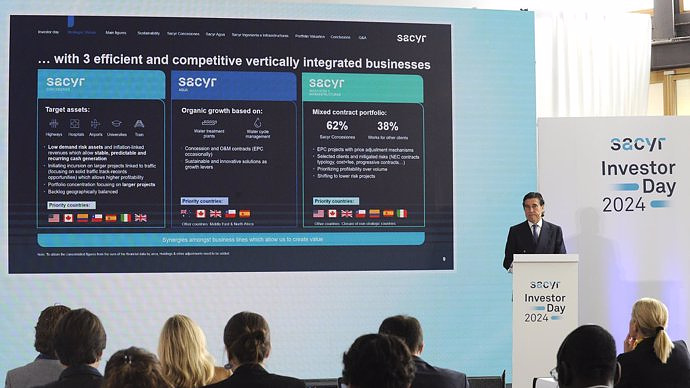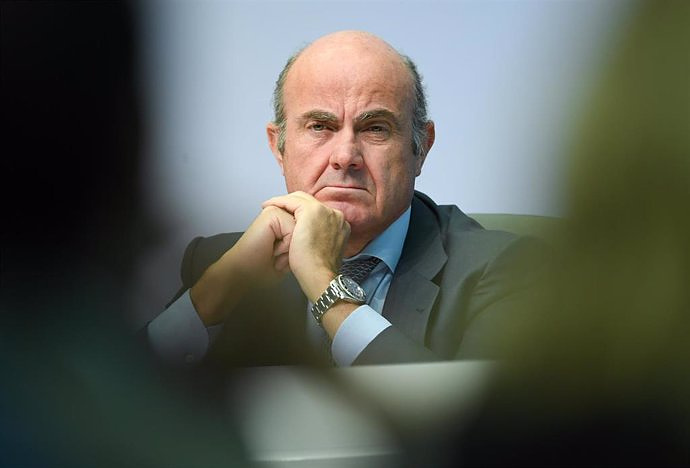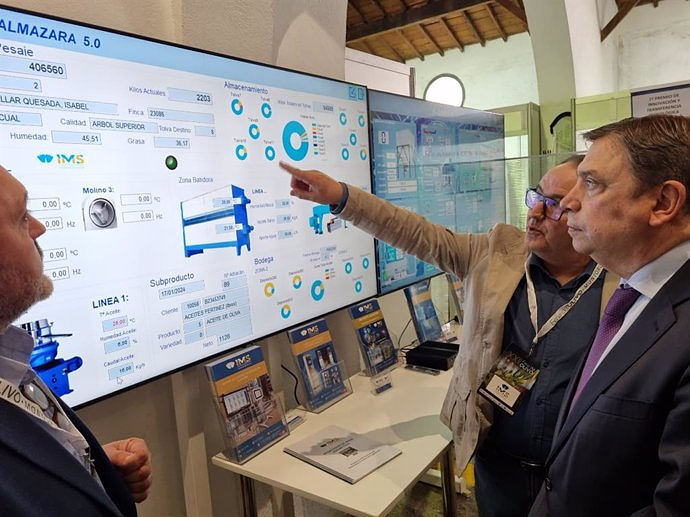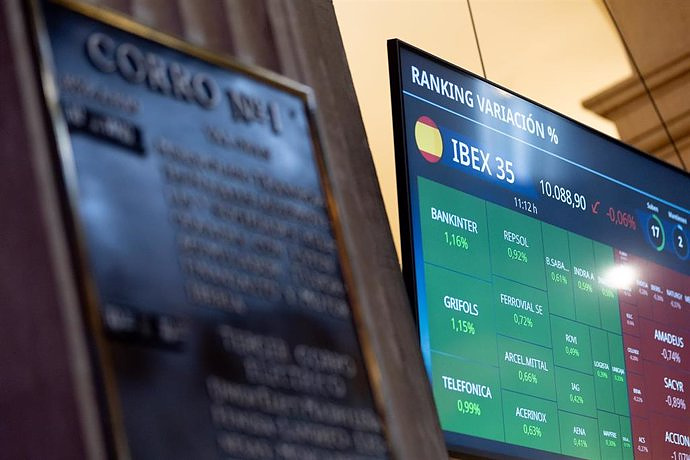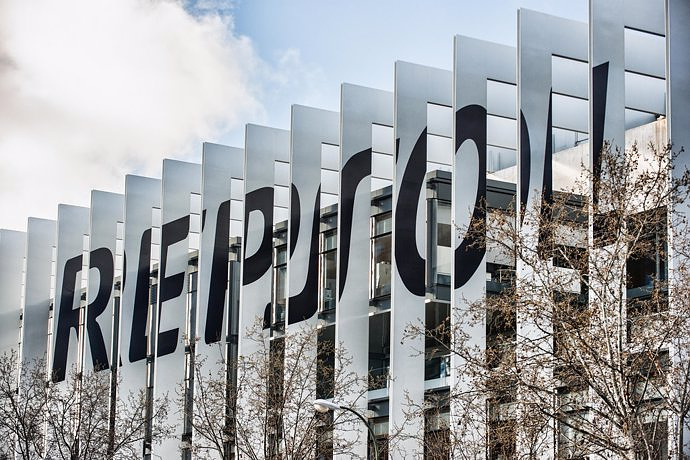Kaymakci says that if Turkey were using its migration agreements with the EU as blackmail, "Europe would not survive"
He maintains that entry into the EU "cannot be held hostage by Greek and Greek Cypriot irrationality"
MADRID, 2 Jun. (EUROPA PRESS) -
The Turkish Deputy Minister of Foreign Affairs, Faruk Kaymakci, has indicated that although they are in favor of NATO's open-door policy, it is a fundamental condition that new candidates such as Sweden and Finland withdraw the alleged support they offer to the Kurdish forces, considered terrorists. by Ankara, and stop demanding that the sale of weapons material to Turkey be restricted.
On his way through Madrid on the occasion of his meeting with the Secretary of State for the European Union, Pascual Navarro, Kaymakci told Europa Press in an interview that Sweden and Finland must reverse their positions in this regard, otherwise "they cannot enter into the logic of the NATO alliance".
"Sweden and Finland have to realize that they are becoming members of an alliance in which we all have to fight for and for each other. This means that you cannot have your terrorist or we have ours. We have to have a policy very clear against all kinds of terrorist groups," he said.
"Our policy is very clear, an open door policy. We want to see a stronger NATO. We want to see stronger allies, but first of all we want to see a real alliance where allies respect each other's defense and security." has explained.
In this sense, Kaymakci has emphasized that "any support" for the Kurdistan Workers' Party (PKK) and the People's Protection Units (YPG) has to end. "There are some statements that promote PKK terrorism in this country," she protested.
"Only two days ago the leader of the YPG appeared on Swedish state television and a week ago the PKK demonstrated in the heart of Stockholm with flags and photographs of Ocalan," Kaymakci criticized, referring to PKK president Abdullah Ocalan. prisoner in Turkey.
Similarly, "the allies cannot impose restrictions against other allies in terms of defense industry sales. Sweden and Finland have called for the sale of arms and defense industrial products to Turkey to be restricted. This cannot be." , Kaymakci underlined.
Regarding the conflict in Ukraine, Kaymakci stressed that if Turkey had been a member of the European Union "this war would not have happened". In his opinion, it would have been avoided because Ankara's presence would have created "a strong deterrent in the West against any aggression in Europe."
"Unfortunately, today, the EU's cooperation with NATO does not exist at all. Unfortunately, NATO and the EU are divided and Turkey is marginalized from the rest of Europe. This encourages aggression in Europe," he lamented.
In this sense, he has highlighted Turkey's privileged position as moderator in the talks between Russia and Ukraine and if the Turkish president, Recep Tayyip Erdogan, has insisted so much on hosting these meetings, it is because of the "good connections" they maintain. with both countries.
"This war in Europe is very expensive and there will be no winner. The longer the war lasts, the more we will lose. That is why we want to use our good offices and we want to use our good connections with these two countries to stop this war as quickly as possible." , has explained.
"Otherwise, I think we will all lose because this is not a war between Ukraine and Russia. It is a war against the West as well. It is a war against our democratic principles. And that is why we have to have a strong and unified position." , has remarked.
In another order of things, Deputy Minister Kaymakci has also delved into the always complicated relationship they maintain with Greece, a country that he has accused of "abusing" its membership in the European Union and "exporting" the problems that concern them to impose their conditions on Turkey.
"Greece has exported these problems to the EU and to some of the member states. In reality, Greece is abusing its EU membership and its veto rights against Turkey. They are trying in Europe to solve these problems and it is not up to the EU to decide. ", he pointed out.
"If it is about airspace, or territorial waters, it is not up to the United States or Germany to decide where the border of the Aegean Sea is," said Kaymakci, who has reproached the Greek Prime Minister, Kyriakos Mitsotakis, for using his visit to Washington to expose these issues, thus breaking with the pact reached with Erdogan to address these issues bilaterally.
Kaymakci does not close the door to Turkey's entry into the European Union, but has stressed that a hypothetical membership "should not be held hostage to Greek and Greek Cypriot irrationality", as well as "to their maximalist demands".
On the other hand, Kaymakci has rejected those who consider with their statements that Turkey is not doing enough in the matter of migration and has reproached the European Union for not fulfilling its part of the agreement. "We had a deal with the EU, but it hasn't fully delivered on its promises," she said.
"So the three proposed over €6bn have not been fully spent. Only €4.2bn has been spent so far and also the EU was supposed to voluntarily remove people from Turkey and has not put this into practice. plan, nor has he collaborated, as he said, to create better living conditions in northern Syria," he reproached.
"As of today we host 3.8 million Syrians. We have 4.3 million people that we host in Turkey, mostly from Syria and from other Asian countries, like Afghanistan (...). Now we also have about 6 million Ukrainians," he said.
Faced with those who think that Turkey is blackmailing the EU through the migration pact they signed, Kaymakci is clear that if that were the case, "the rest of Europe would not survive."
"If there was blackmail, we would not have all these people in our own country. We have let these people in because they were desperate, because they were escaping from the war. We did not get these people to obtain funding from the EU," which, he insisted, "It's very limited compared to what it's cost us."
"This is not a question of blackmail, but unfortunately, some of the EU countries do not realize it. The burden on our shoulders is very great," stressed the Turkish deputy minister, who mentioned Belarus as one of the those countries that would indeed be blackmailing using immigration.
"Belarus has blackmailed the rest of Europe. They try to bring people to the borders to blackmail the EU. If we had done this, I don't think the rest of Europe would have resisted because we are talking about millions of people," he asserted.

 Exploring Cardano: Inner Workings and Advantages of this Cryptocurrency
Exploring Cardano: Inner Workings and Advantages of this Cryptocurrency Seville.- Economy.- Innova.- STSA inaugurates its new painting and sealing hangar in San Pablo, for 18 million
Seville.- Economy.- Innova.- STSA inaugurates its new painting and sealing hangar in San Pablo, for 18 million Innova.- More than 300 volunteers join the Andalucía Compromiso Digital network in one month to facilitate access to ICT
Innova.- More than 300 volunteers join the Andalucía Compromiso Digital network in one month to facilitate access to ICT Innova.-AMP.- Ayesa acquires 51% of Sadiel, which will create new technological engineering products and expand markets
Innova.-AMP.- Ayesa acquires 51% of Sadiel, which will create new technological engineering products and expand markets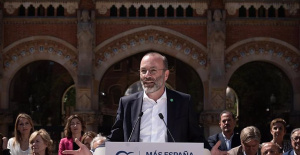 Weber (PPE) asks to vote for the PP in the European elections to "defend the rule of law" in Spain
Weber (PPE) asks to vote for the PP in the European elections to "defend the rule of law" in Spain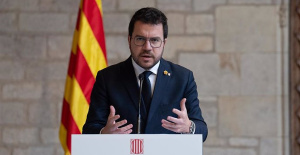 Aragonès warns that "an incoherent agreement" in Catalonia would "difficult the collaboration" of ERC with the Government
Aragonès warns that "an incoherent agreement" in Catalonia would "difficult the collaboration" of ERC with the Government The attorney general justifies the recusal of TS magistrates and vindicates his "right" to defend himself
The attorney general justifies the recusal of TS magistrates and vindicates his "right" to defend himself Joselu allows him to dream about the 'Fifteenth'
Joselu allows him to dream about the 'Fifteenth' How Blockchain in being used to shape the future
How Blockchain in being used to shape the future Not just BTC and ETH: Here Are Some More Interesting Coins Worth Focusing on
Not just BTC and ETH: Here Are Some More Interesting Coins Worth Focusing on Expociència expects to receive more than 4,000 visitors in the Science Park of the University of Valencia
Expociència expects to receive more than 4,000 visitors in the Science Park of the University of Valencia They develop devices for the precise diagnosis of cancer patients
They develop devices for the precise diagnosis of cancer patients UMH researchers are working on a high-quality apricot crop that requires less irrigation water
UMH researchers are working on a high-quality apricot crop that requires less irrigation water The UPV develops an application to improve the quality of life of patients with glioblastoma
The UPV develops an application to improve the quality of life of patients with glioblastoma A million people demonstrate in France against Macron's pension reform
A million people demonstrate in France against Macron's pension reform Russia launches several missiles against "critical infrastructure" in the city of Zaporizhia
Russia launches several missiles against "critical infrastructure" in the city of Zaporizhia A "procession" remembers the dead of the Calabria shipwreck as bodies continue to wash up on the shore
A "procession" remembers the dead of the Calabria shipwreck as bodies continue to wash up on the shore Prison sentences handed down for three prominent Hong Kong pro-democracy activists
Prison sentences handed down for three prominent Hong Kong pro-democracy activists ETH continues to leave trading platforms, Ethereum balance on exchanges lowest in 3 years
ETH continues to leave trading platforms, Ethereum balance on exchanges lowest in 3 years Investors invest $450 million in Consensys, Ethereum incubator now valued at $7 billion
Investors invest $450 million in Consensys, Ethereum incubator now valued at $7 billion Alchemy Integrates Ethereum L2 Product Starknet to Enhance Web3 Scalability at a Price 100x Lower Than L1 Fees
Alchemy Integrates Ethereum L2 Product Starknet to Enhance Web3 Scalability at a Price 100x Lower Than L1 Fees Mining Report: Bitcoin's Electricity Consumption Declines by 25% in Q1 2022
Mining Report: Bitcoin's Electricity Consumption Declines by 25% in Q1 2022 Oil-to-Bitcoin Mining Firm Crusoe Energy Systems Raised $505 Million
Oil-to-Bitcoin Mining Firm Crusoe Energy Systems Raised $505 Million Microbt reveals the latest Bitcoin mining rigs -- Machines produce up to 126 TH/s with custom 5nm chip design
Microbt reveals the latest Bitcoin mining rigs -- Machines produce up to 126 TH/s with custom 5nm chip design Bitcoin's Mining Difficulty Hits a Lifetime High, With More Than 90% of BTC Supply Issued
Bitcoin's Mining Difficulty Hits a Lifetime High, With More Than 90% of BTC Supply Issued The Biggest Movers are Near, EOS, and RUNE during Friday's Selloff
The Biggest Movers are Near, EOS, and RUNE during Friday's Selloff Global Markets Spooked by a Hawkish Fed and Covid, Stocks and Crypto Gain After Musk Buys Twitter
Global Markets Spooked by a Hawkish Fed and Covid, Stocks and Crypto Gain After Musk Buys Twitter Bitso to offset carbon emissions from the Trading Platform's ERC20, ETH, and BTC Transactions
Bitso to offset carbon emissions from the Trading Platform's ERC20, ETH, and BTC Transactions Draftkings Announces 2022 College Hoops NFT Selection for March Madness
Draftkings Announces 2022 College Hoops NFT Selection for March Madness

